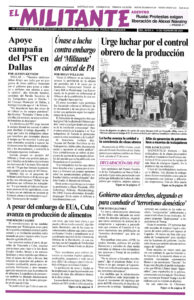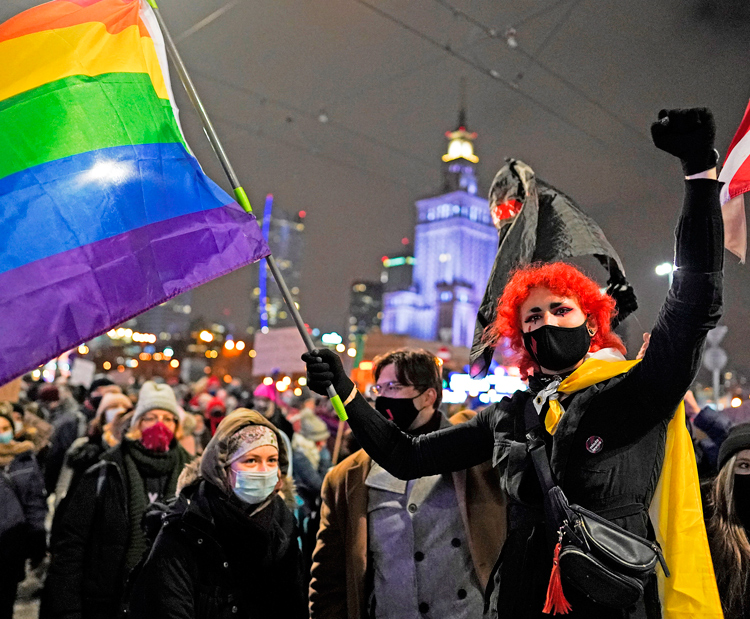The Polish government moved Jan. 27 to implement a near-total ban on women’s right to choose to have an abortion, effective immediately. The ban had been adopted three months earlier, but was postponed under the pressure of mass demonstrations of hundreds of thousands across the country.
Following the government’s announcement, tens of thousands rapidly took to the streets, especially in Warsaw, the capital. “We are inviting everyone, please, go out, be motivated, so we can walk together, make a mark,” protest leader Marta Lempart said.
Gabriela Stepniak was among those who joined the march in Warsaw. “I want us to have our basic rights, the right to decide about our bodies, the right to decide what we want to do and if we want to bear children and in what circumstances to have children,” she told Reuters.
Some protesters carried banners saying, “I think, I feel, I decide.”
Some marchers wore green bandanas, the symbol for the movement in Argentina that recently won legalization.
“The anti-abortion law was published late in the evening, so we had little time to prepare and protests were organized only in a few places,” Aleksandra Musil told CBS News Jan. 28. “Today, they take place all over the country. I am organizing one myself in my town.”
The government claimed the protests were illegal, in violation of coronavirus restrictions on public gatherings. There was a heavy police presence and arrests were made, but the protests continued.
Attempts by the ruling Law and Justice Party to pass extreme anti-abortion legislation in parliament had failed in 2016 and 2018 after similar mass protests. To get around the pressure of these public mobilizations, the government placed the decision in the hands of the Constitutional Court, the highest judicial body in the country, which adopted the ban in October.
Even though polls show a majority oppose the new restrictions, the latest round of demonstrations have yet to approach the size of actions last fall, when some 400,000 took to the streets.
The implementation leaves few legal options for abortion. The ruling bans the procedure in the case “of a severe and irreversible fetal defect or incurable illness that threatens the fetus’s life,” which was the grounds for 98% of all legal abortions in Poland in 2019. The only legal openings now are cases of rape or incest, or if the woman’s health or life is in danger.
For now, women are left with either paying for an illegal abortion inside the country or traveling abroad for a legal one. Some 150,000 women a year have done so over the past period. With coronavirus travel restrictions in place, this option is closed for now. One banner in a demonstration in the city of Rzeszow captured the class content of the Polish abortion restriction, “Abortion ban is discrimination against the poorest.”


